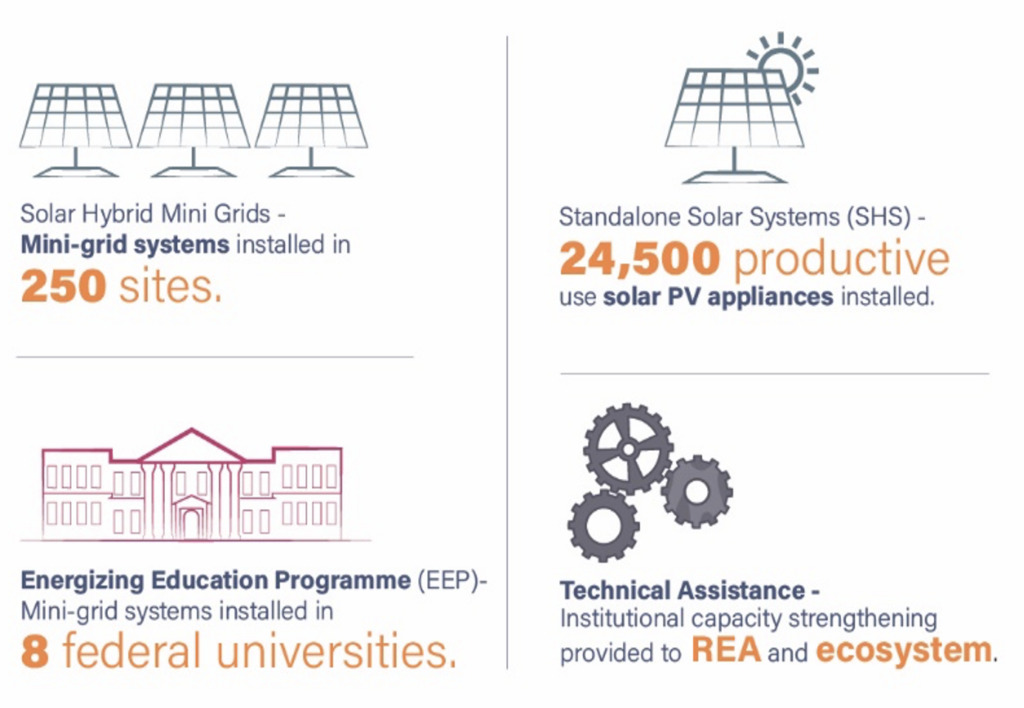The Nigerian Electrification Project (NEP) is a federal government scheme designed in 2018 with the World Bank, the African Development Bank (AfDB), and other partners to provide energy access to under- and unserved communities in Nigeria using renewable sources. It is a private sector-driven nationwide initiative implemented by the country’s Rural Electrification Agency (REA). The Project promotes electricity access for households, micro, small, and medium enterprises (MSMEs), and public education institutions. It specifically aims to provide cost-effective power to 250,000 MSMEs and 1 million households through off-grid and mini-grid systems by 2023 via four main components:1
- Solar Hybrid Mini-grids – Mini-grid systems installed in 250 sites.
- Standalone Solar Systems (SHS) – 24,500 productive use solar PV appliances installed.
- Energizing Education Programme (EEP) – Mini-grids installed in 8 federal universities.
- Technical Assistance – Institutional capacity strengthening provided to REA and private organizations in the ecosystem by international partners.2

Read more- Energy for Growth Hub

